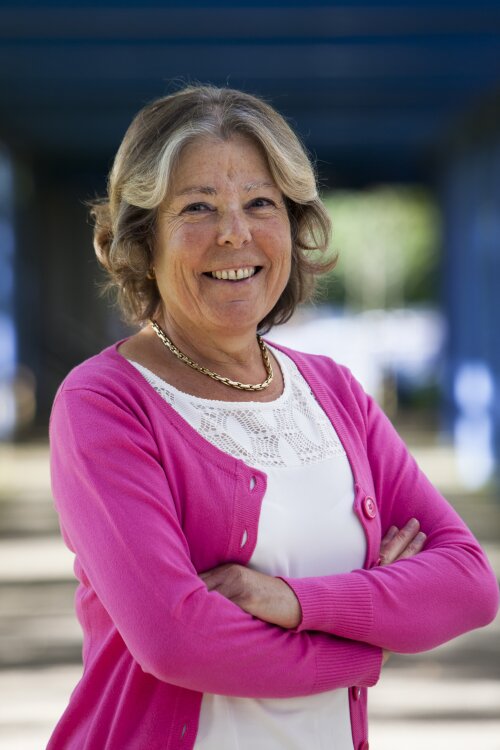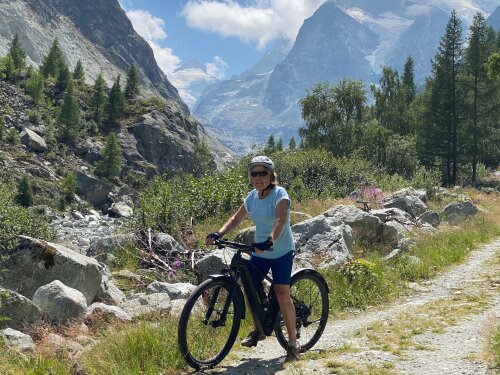Interview with RECOVER Work Package 4 Lead Emeritus Professor Greet Ieven

Prof. Dr. Greet Ieven is a medical microbiologist and emeritus professor at the University of Antwerp. She has also been responsible for the clinical diagnostic laboratory at the Antwerp University Hospital (UZA) until August 2016. Professor Ieven has been involved from the beginning in a number of European projects. One of these was the GRACE project, which revolved around documentation on the aetiology and outcome of respiratory infections in primary care. She was Work Package Lead for the diagnostic work, which resulted in being Work Package Lead in subsequent projects such as PREPARE and RECOVER. Her main focus is molecular detection of respiratory pathogens.
What does the role of Work Package 4 within RECOVER entail?
Greet Ieven: Work Package 4 (WP4), of which I am the lead, is mainly supportive for both the laboratories and the clinical studies in primary care and hospitals. Appropriate sampling and processing is very important within these studies. In order to produce reliable results, it’s essential to have patients sampled in a uniform and standardised way, to preserve samples in optimal conditions and to analyse these with state of the art methods. That is where WP4 is involved. Each protocol has a study-specific sampling and processing part and we provide support there.
We advise clinicians, give input on research questions, and provide sampling-kits. We organise the transport of the samples back to our central lab in Antwerp. Next to that, we have some scientific objectives as well. We are responsible for the sample analyses and the detection of the SARS COV-2 virus or other respiratory viruses and possible bacterial causes for infections.
Because we are part of LAB-Net, another important role is supporting local labs, e.g. on the choice of sensitive and specific SARS COV-2 tests: we were involved in the development of an in-house test for the detection of SARS COV-2 early 2020 when no commercial tests were available yet. At the beginning of the pandemic, we sent out a questionnaire to numerous European labs to assess their capacity for the detection of SARS COV-2 during an epidemic. In March 2020, we could conclude that based on the results almost 50% of labs had a SARS COV-2 test already in place. Nevertheless, there were also many labs that still faced quite a number of challenges. For example, the lack of reference materials and specific test panels.
A final essential aspect of WP4 is the biobanking of samples. We have an immense biobank of thousands of specimens, not only from RECOVER but also from PREPARE and GRACE. These samples can be used in future research and are very valuable, because we not only have the results of what they contain but can also link them to the clinical data. This also makes us a preferred partner for many diagnostic companies for validation studies.
Could you tell us a little bit more about the work you’re involved in?
Greet Ieven: I coordinate all of the aspects mentioned previously. I have an important role in deciding what kind of test we are going to use, how to support the clinical work packages and what to do in the lab. The practical work in the lab is done by technicians, but in the validation of the results I am involved as well. On top of that, I communicate with the other Work Packages and the internal and external partners all over Europe. Finally, I am also actively involved in writing publications.
What is the expected impact of your work from a microbiology perspective?
Greet Ieven: There are two perspectives: a technical perspective and a more clinical, microbiological perspective. From a technical perspective, we have a very good view on what tests are good to use, in terms of turnaround time to rapid results but also in terms of sensitivity: which tests detect accurately the most SARS COV-2 and other respiratory viruses. From a more clinical, microbiological perspective, we have a very good view on the epidemiology of the respiratory viruses. We have lots of data on the aetiology, and we can link these data to clinical data from patients.
In the context of COVID-19, what are some things you’ve found easy/challenging to work with?
Greet Ieven: The collaboration with so many international partners is very positive, which is also one of the successes of the RECOVER studies. We already collaborated in previous projects so we knew each other, had a very good team spirit and everyone trusts and motivates each other. However, it was challenging in the beginning to obtain enough materials, for example, to make kits and swabs. Transporting media was also difficult, because the logistic companies that provided these materials were all out of stock and there was a huge demand. Another challenge was receiving enough feedback from the labs to whom we sent questionnaires. That’s also why we collaborated with Quality Control for Molecular Diagnostics (QCMD), a world leading independent International External Quality Assessment / Proficiency Testing organisation, to help us reach out to more labs.
Do you have any lessons to share for the future?
Greet Ieven: In the early phases, we really struggled to have enough available materials. One of the lessons learned is to make contracts beforehand with the logistic companies to be a preferred partner and have access to the materials as well as with companies that make primers, probes and tests. That way you can concentrate on analysing the samples from the beginning and won’t get stuck with problems of unavailability. Another key point is good communication through different channels and identifying contact persons in the different sites and countries on whom you can rely.
Can you tell us something about your hobbies as well?
Greet Ieven: Since about ten years, I have loved to travel to the Swiss mountains to go hiking, biking and skiing. The nature is beautiful, it’s not crowded, it’s good for your health and there are stunning views everywhere. It’s a place that you can visit year round. Apart from this I very much love to spend time with my family, especially with my grandchildren. On Wednesdays my four grandchildren, between the ages of five and seven, stay at our home. It is very intensive but I love it!
